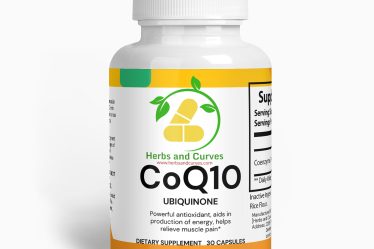
In our quest for a healthy life, vitamins play a pivotal role. These essential nutrients support various bodily functions, from energy production to immune defense. Despite their importance, vitamin deficiencies are more common than we might think, leading to a range of health issues. In this article, we will delve into the world of vitamins, explore the symptoms of their deficiencies, and provide tips on how to ensure you’re getting enough of these vital nutrients.
The Essential Vitamins and Their Roles
Vitamins are organic compounds required in small amounts for normal growth and metabolism. There are 13 essential vitamins, each serving unique functions:
- Vitamin A: Crucial for vision, immune function, and skin health.
- Vitamin B1 (Thiamine): Supports energy metabolism and nerve function.
- Vitamin B2 (Riboflavin): Involved in energy production and cellular function.
- Vitamin B3 (Niacin): Aids in DNA repair and metabolic processes.
- Vitamin B5 (Pantothenic Acid): Essential for synthesizing coenzyme A, important for fatty acid metabolism.
- Vitamin B6 (Pyridoxine): Vital for amino acid metabolism and neurotransmitter synthesis.
- Vitamin B7 (Biotin): Plays a key role in fat, carbohydrate, and protein metabolism.
- Vitamin B9 (Folate): Necessary for DNA synthesis and cell division.
- Vitamin B12 (Cobalamin): Important for red blood cell formation and neurological function.
- Vitamin C: Antioxidant that supports immune function and skin health.
- Vitamin D: Crucial for calcium absorption and bone health.
- Vitamin E: Acts as an antioxidant and supports immune function.
- Vitamin K: Essential for blood clotting and bone health.
Symptoms of Vitamin Deficiencies
Vitamin A
Deficiency in Vitamin A can lead to night blindness, dry eyes, and an increased risk of infections. In severe cases, it can cause complete blindness and increase mortality rates, particularly in children.
Vitamin B1 (Thiamine)
Thiamine deficiency can result in beriberi, characterized by weight loss, emotional disturbances, and impaired sensory perception. Wernicke-Korsakoff syndrome, a severe neurological disorder, can also develop.
Vitamin B2 (Riboflavin)
Lack of riboflavin can cause cracks at the corners of the mouth, sore throat, swollen tongue, and skin disorders.
Vitamin B3 (Niacin)
Niacin deficiency leads to pellagra, which includes symptoms like diarrhea, dermatitis, dementia, and can eventually be fatal if untreated.
Vitamin B5 (Pantothenic Acid)
Deficiency is rare but can cause fatigue, irritability, numbness, and muscle cramps.
Vitamin B6 (Pyridoxine)
Pyridoxine deficiency can cause anemia, dermatitis, depression, confusion, and a weakened immune function.
Vitamin B7 (Biotin)
Symptoms of biotin deficiency include hair loss, skin rashes, and brittle nails, along with neurological issues like depression and lethargy.
Vitamin B9 (Folate)
Folate deficiency leads to megaloblastic anemia, characterized by fatigue, mouth sores, and poor growth in children. In pregnant women, it can cause neural tube defects.
Vitamin B12 (Cobalamin)
Deficiency in B12 can cause pernicious anemia, fatigue, weakness, neurological issues, and glossitis (inflamed tongue).
Vitamin C
Lack of Vitamin C results in scurvy, with symptoms including bleeding gums, joint pain, poor wound healing, and fatigue.
Vitamin D
Deficiency in Vitamin D can lead to rickets in children and osteomalacia in adults, causing bone pain and muscle weakness.
Vitamin E
A shortage of Vitamin E can result in hemolytic anemia, peripheral neuropathy, and muscle weakness.
Vitamin K
Vitamin K deficiency increases the tendency to bleed or bruise easily and can lead to heavy menstrual bleeding.
Ensuring Adequate Vitamin Intake
Maintaining a balanced diet rich in fruits, vegetables, whole grains, lean proteins, and dairy products is key to preventing vitamin deficiencies. Here are some tips to ensure adequate vitamin intake:
- Diverse Diet: Eat a variety of foods to cover the spectrum of vitamins.
- Fortified Foods: Consume foods fortified with essential vitamins, such as cereals and milk.
- Supplements: Consider multivitamin supplements if you have dietary restrictions or health conditions that impair nutrient absorption.
- Sun Exposure: Get adequate sunlight exposure for Vitamin D synthesis.
- Regular Check-ups: Monitor your health with regular check-ups to catch any deficiencies early.
Conclusion
Vitamins are indispensable to our health, and understanding the signs of their deficiencies can help us take proactive steps to maintain optimal health. By incorporating a varied and balanced diet, and being mindful of our nutritional needs, we can ensure that we provide our bodies with the essential vitamins needed for a healthy and vibrant life.





